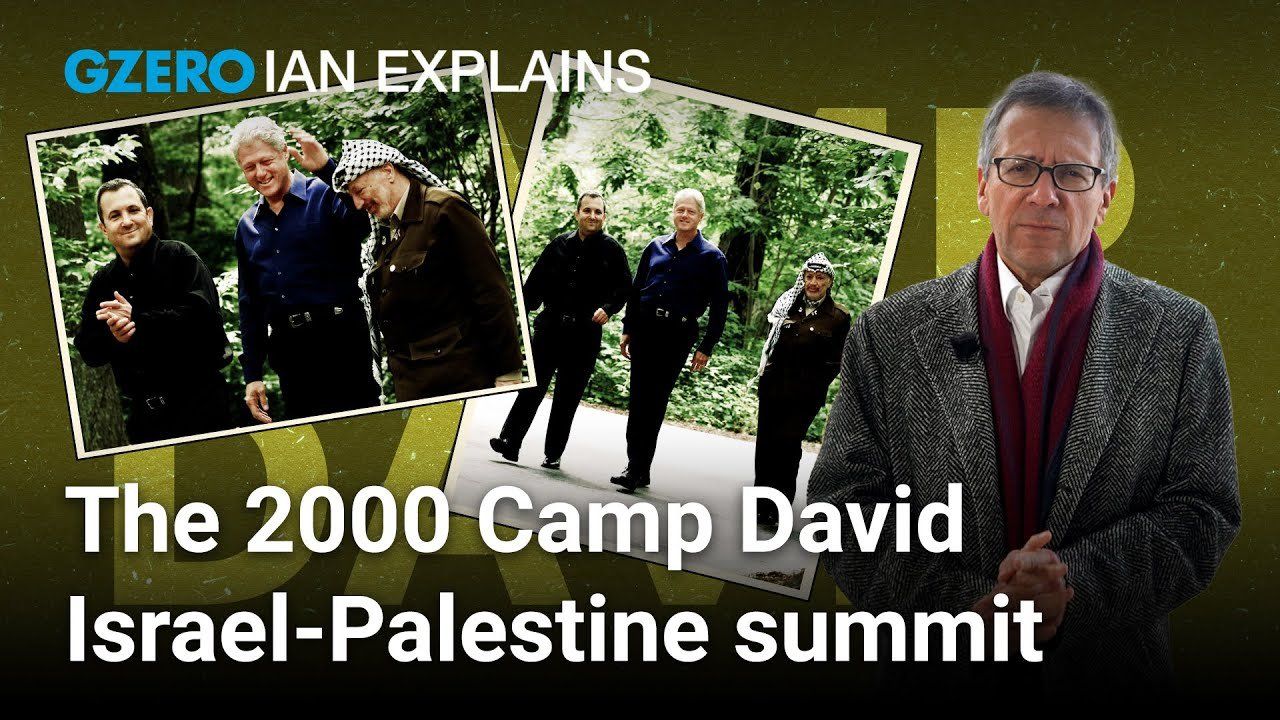Ian Explains: Why Israeli-Palestinian peace talks at Camp David came close but failed in 2020

The last best chance at peace between Israel and Palestine included bowling and baseball at a wooded retreat in rural Maryland.
Twenty-three years ago at Camp David, US President Bill Clinton welcomed Palestinian Liberation Organization chairman Yasser Arafat and Israeli Prime Minister Ehud Barak for a two-week summit in a bucolic setting. The goal: find an enduring solution to the Israel-Palestine crisis.
But as Ian Bremmer explains, as the three leaders strolled together down a leafy Camp David road, they couldn’t have been further apart in their expectations for the summit. Ehud Barak, the young, leftist Israeli Prime Minister—fresh off a series of failed negotiations with Syria—had pushed hard for the summit, arguing that it was the “pressure cooker” that would require him and Arafat to make real progress on a two-state solution. His strategy was to either secure a deal or expose Arafat as an unreliable partner.
Meanwhile, Yasser Arafat was treading water of his own. Given his constituency’s mistrust of Israel and his resentment of Barak’s recent focus on Syria, Arafat was in no hurry to reach an agreement. He had warned Clinton ahead of the summit that his side was not ready to come to the table. Nor did he trust Barak to follow through on his promises.
This is the story of what happened at those talks and why the best chance in a generation for peace in the Middle East failed.
Watch the episode: Is an Israel-Palestine two-state solution possible?
Catch GZERO World with Ian Bremmer every week online and on US public television. Check local listings.
- Ian Bremmer: Understanding the Israel-Hamas war ›
- Ian Explains: How Israel & Iran went from friends to enemies ›
- Hamas: What is it? ›
- The Graphic Truth: Where do Palestinian refugees live? ›
- Viewpoint: How Israel-Palestine conflict became a real “Holy War” ›
- From tragedy to resilience: The story of Israel according to former PM Barak ›
- Ehud Barak interview: Israeli democracy on the chopping block ›